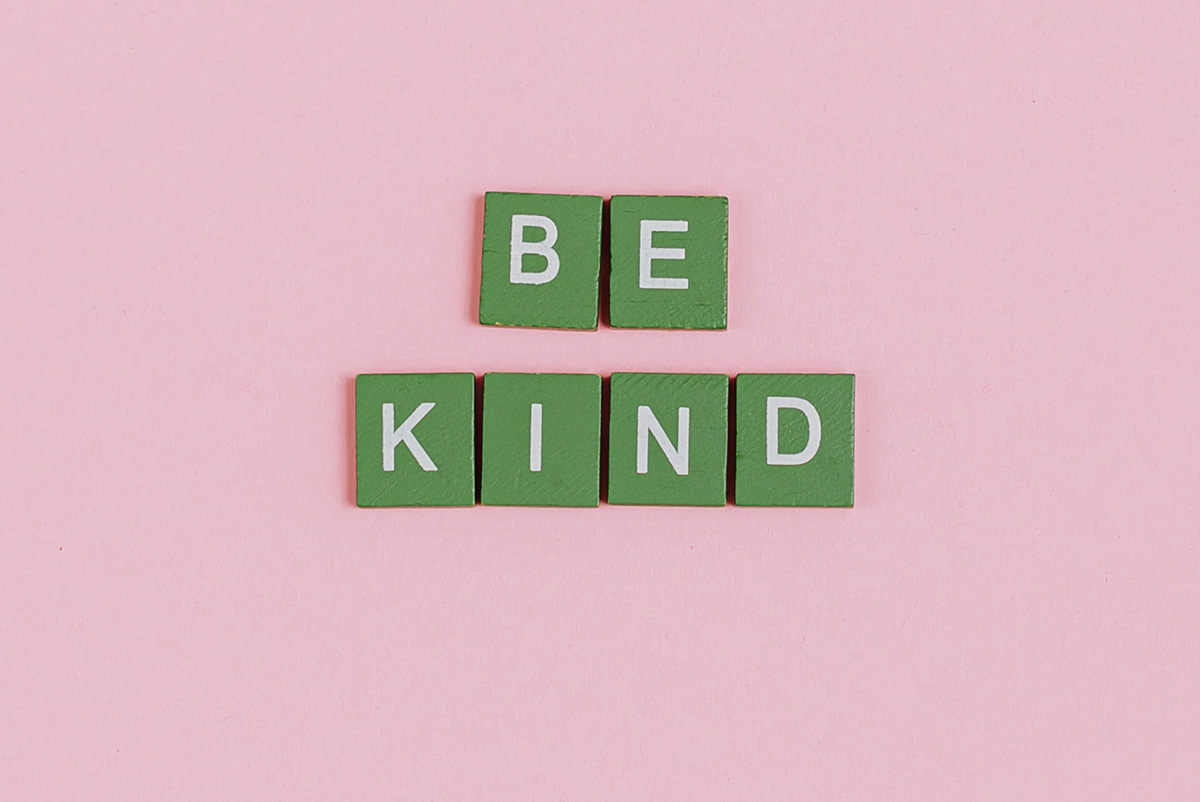Blog #25
Kindness Brings Humanity to the Workplace

Kindness is often overlooked in the 21st Century. Just take a look at social media for confirmation of this. The world has rarely felt more tribal and divided. Sadly, this seems to be bleeding into offline reality too. Some – not all, but some – people holding positions of authority in business maintain the outdated view that kindness somehow equates to weakness.
Personally, I think that kindness – approaching the workplace with a little more velvet glove and a little less iron fist – is the way forward. Thankfully, it appears that I am not alone in this belief. Kindness at work has never felt more essential or appreciated. We’re all doing the best we can in increasingly challenging circumstances, and an increasing number of people are showing an understanding of this.
Research shows that leading through kindness and compassion trumps ruling by fear and aggression. It has been explained that purposeful kindness makes for superior leadership, with employees willing to go the extra mile for a business. People treated with empathy and understanding at work are also a staggering 278% likelier to act with similar kindness and empathy toward their co-workers and subordinates. That’s a workplace – and a world – that I would like to live in.
Maya Angelou once explained that “people will forget what you said, people will forget what you did, but people will never forget how you made them feel” – something I firmly believe. Equally, though, Michelle Obama reminded us that, “we need to do a better job of putting ourselves higher on our own ‘to do’ list,” back in 2016.
It’s all too easy to feel that we’re failing in the modern world under the current circumstances. Balancing home life and work leads to ‘working mom guilt‘ – something that needs to be shed, for all our sakes. We’re all balancing family and career responsibilities, and our every decision will have an impact on ourselves and others. We have a duty of care to ensure this impact is positive.
Somebody who has helped me broaden my impact is Emma Sergeant, President Europe DAS Group of Companies at Omnicom Group, who has provided guidance and mentorship. Back in 2020, I completed the Oxford Women’s Leadership Development Programme. This event taught me a great deal about leadership styles, communication and influence techniques, the importance of self-care – and, yes, showing kindness to ourselves and our colleagues.
Emma was one of the inspirational leaders featured in this course and continues to lead by example in this regard. She often takes time out of her busy schedule to help me through challenging days and circumstances, which I hugely appreciate. One of the most telling pieces of research that Emma shared with me was a report on The Power of Kindness from Hall and Partners. My views on the importance of this are echoed in the report:
“Focusing on the importance of kindness in leadership is neither a fad, nor a shallow pitch made by a motivational speaker. Everyone can aspire to kindness: individually, our own actions add to the whole, and as a result, kindness becomes more powerful and yields a greater impact. It gives life a richer meaning and has been shown to make us happier in the process.”
This struck a chord with me, not least because I find it equal parts surprising and saddening that kindness would be considered a fad or a shallow pitch. Kindness shows optimism – a belief in ourselves and our colleagues that any challenge can be overcome, and any negative situation reversed to reach a greater good eventually. Above all, as the report touches upon, kindness takes courage.
Responding to setbacks with pure emotion, often anger, fear or blame-throwing demonstrates a lack of resilience, which harms the leadership credentials of anybody in business. Why would we want to subject ourselves to the whims and outrages of somebody else, if we can avoid that? We may tolerate these behaviours from our young children until they’re old enough to know better. However, speaking for myself, I’m less inclined to accept a tantrum from a grown adult within a C-suite office.
There is no situation where it is acceptable for managers to belittle, berate, or demean employees, and nobody can be expected to tolerate such behaviour. The ramifications of substandard leadership is another conversation for another day. If you’re struggling to understand the behaviour or decisions of a senior figure in your office, however, I recommend the work of Thomas Erikson – especially his latest book, Surrounded by Bad Bosses.
The reality is, we’re still living and working in a crisis situation. The pandemic is not looking like it’s going to slip quietly into the night any time soon, with new waves continuing to arise and wreak havoc across the globe. In times of crisis, we all need to feel like we’re pulling in the same direction. As the Hall and Partners report reveals, 74% of people think that means adapting to the circumstances we find ourselves in.
This adaptation should acknowledge that the world is changing – and continuing to do so. We’re all adjusting to that in our own way. The likeliest way to ensure that these adaptations are positive is to show kindness and compassion to each and every person in the workplace, starting with ourselves and sharing this empathy with everybody that shares our working space.
About LEAD Network Europe
The LEAD Network Europe is a non-profit and volunteer-led organisation whose mission is to attract, retain, and advance women in the consumer products and retail sector in Europe through education, leadership, and business development. The LEAD Network is run by and for its members, women and men, and we value every individual for their unique perspective. With a primary focus on promoting gender equality the organisation strives for the advancement of women of every race, ethnicity, gender identity or expression, sexual orientation, age, educational background, national origin, religion, physical ability and lifestyle. Its vision is of a fair, diverse and vibrant industry where everyone can thrive. A diverse workforce where both men and women are enabled to contribute their full potential and lead their organisations to the next level of value creation. LEAD Network accounts for 18,000+ members – both women and men – from 81 countries.
For more information, please visit www.lead-eu.net

